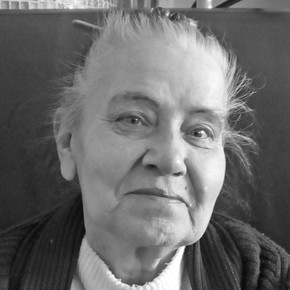Biography
In May 2019, a criminal case was opened in Arkhangelsk against Kaleriya Mamykina. The investigating authorities conducted surveillance on her for more than a year and established the "corpus delicti"—conversations about religion with friends. After 7 months, the charges against her were dropped. In June 2021, without waiting for her good name to be restored, Kaleriya died of covid.
Kaleriya Fyodorovna was born in 1941 in the village of Devyatiny, Vologda Region, in a family of rural workers. Her mother worked on a collective farm, her father was a blacksmith. The family had 8 children, of which Kareliya was the only daughter.
After graduating from school, Kaleriya entered the Trade and Economic College of Petrozavodsk, after which she worked as a chief accountant. For some time she lived in Petrozavodsk and Belomorsk (Karelia). After retirement, she loved caring for plants and flowers, raising chickens and sheep. She tried to lead an active lifestyle, walked and walked a lot, read books.
Case History
The criminal prosecution of Yevgeniy Yakku, an exemplary family man from Arkhangelsk, began in February 2019 - his house was searched, the Investigative Committee opened a criminal case against him. The believer was left without work, his accounts were blocked, cars were arrested. In May, after a year of surveillance of Kaleria Mamykina, a case was opened against her, the “corpus delicti” of which was talking about religion with friends at her home. After 7 months, the charges against her were dropped, in June 2021, without waiting for the restoration of her good name, Kaleria died of covid. Yakku’s case went to court in February 2020. The investigator accused Yevgeniy of allegedly continuing the activities of the LRO of Jehovah’s Witnesses in Arkhangelsk, which was not recognized as extremist. The believer sent complaints to the ECHR, and his wife to the Ministry of Foreign Affairs. The answer
confirmed that Jehovah’s Witnesses have the right to practice their religion in groups. Despite this, in July 2021, the court sentenced the believer to a fine of 780,000 rubles. The Court of Appeal and Cassation upheld this decision.
